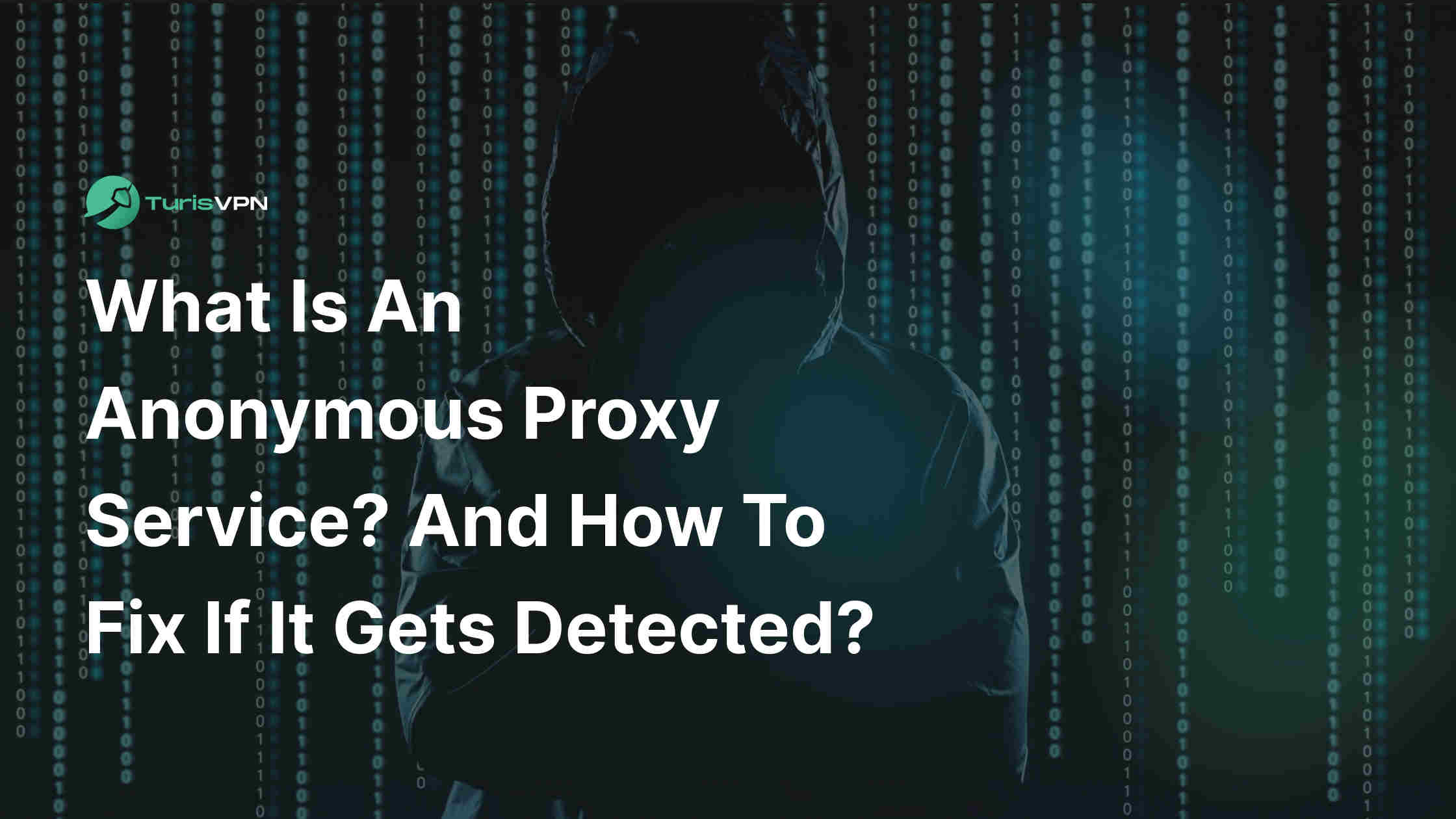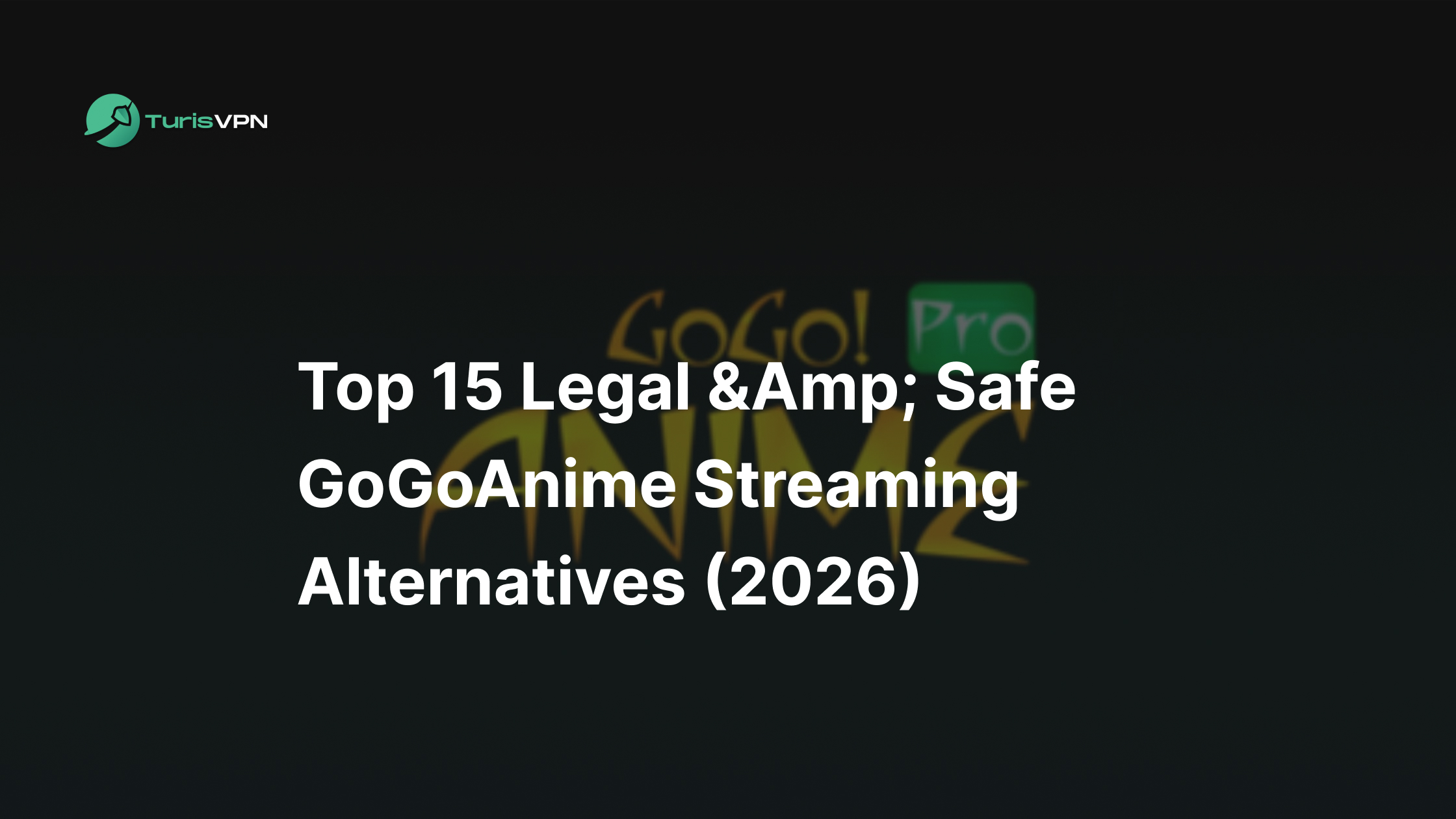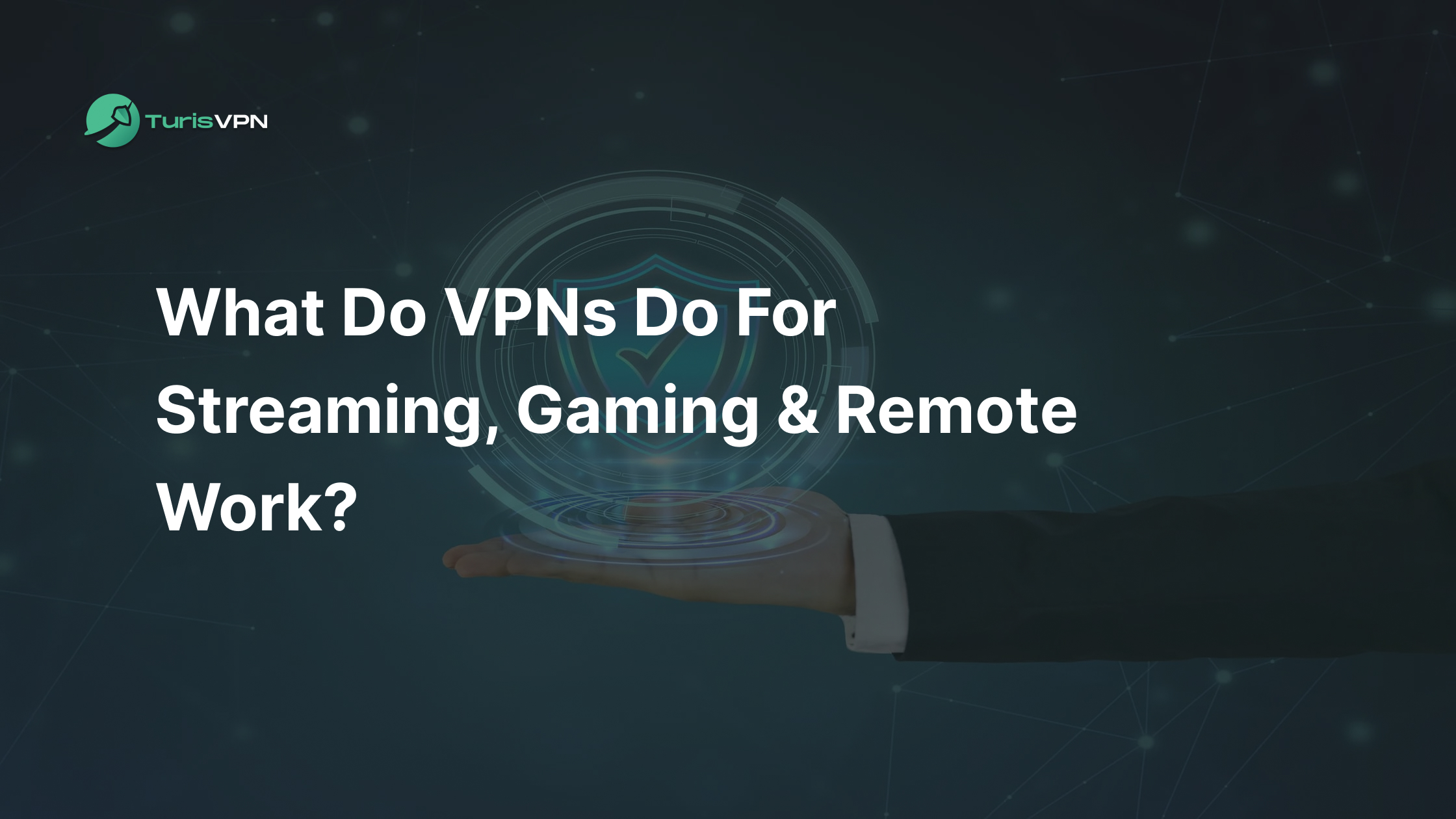As the Internet gets more and more complex, with hundreds to thousands of cases of scams, keeping your privacy and security safe is an absolute must. An anonymous proxy service hides your real IP address, letting you browse the internet without being tracked. This means you can access blocked content and stay private online.
In this blog post, we’ll explain what is an anonymous proxy service, how it helps you, and what to do if it gets detected. Get ready to learn how to protect your online privacy with anonymous proxies!
Key Takeaways
- Anonymous proxies hide your real IP address, making your online activities private and anonymous.
- An anonymous proxy service acts as a middleman, sending requests to websites on your behalf and hiding your real IP address.
- Using TurisVPN offers additional encryption and better security compared to anonymous proxies.
What Is Anonymous Proxy Service?
An anonymous proxy service is a tool that helps keep your online activities private by hiding your real IP address and replacing it with one of its own.

Anonymous proxies are also known as anonymizers. They aim to hide your identity, location, and personal details from the websites you visit. When you browse the internet using an anonymous proxy, you appear as a generic anonymous user to the destination server. This means the website can’t track any personal information about you.
It’s important to note that many types of proxies can function as anonymous proxies. What makes a proxy “anonymous” is how it hides your information and acts between you and the website, not necessarily the type of proxy it is.
How Does an Anonymous Proxy Work?
An anonymous proxy works as a middleman and privacy shield between your device and the internet. In this process, the website only sees the IP address of the proxy server, not your actual IP address.
- You make a request: You try to visit a website or access an online resource.
- Proxy intercepts the request: The anonymous proxy server receives your request first.
- Proxy forwards the request: The proxy server sends your request to the website, but it uses its own IP address instead of yours.
- Website responds to proxy: The website sends the information back to the proxy server.
- Proxy sends data to you: Finally, the proxy server forwards the website’s response back to you.
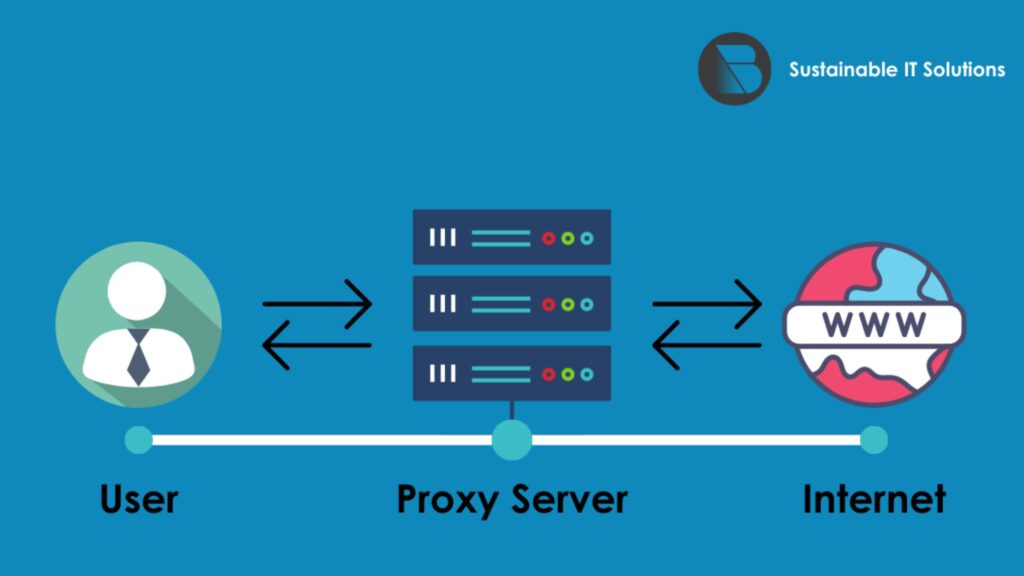
What makes anonymous proxies unique is their focus on privacy. They remove any identifying information from your requests before sending them to the target website. This extra layer of anonymity ensures that your personal details remain hidden.
Types of Anonymous Proxies
Anonymous proxies can be classified into three categories based on how much information they hide:
- Transparent Proxies: These proxies do not hide your IP address. The website can see both your real IP and that you are using a proxy.
- Anonymous Proxies: These proxies hide your IP address but do not hide that you are using a proxy. The website knows a proxy is used but can’t see your real IP.
- Elite Proxies: Also known as high anonymity proxies, these hide both your IP address and the fact that you are using a proxy. The website thinks the requests are coming directly from a regular user.
Using an anonymous proxy helps you stay private online, access restricted content, and protect your personal information from prying eyes. By understanding how they work, you can better utilize them to enhance your online security and anonymity.
Why Should You Use Anonymous Proxy Service?
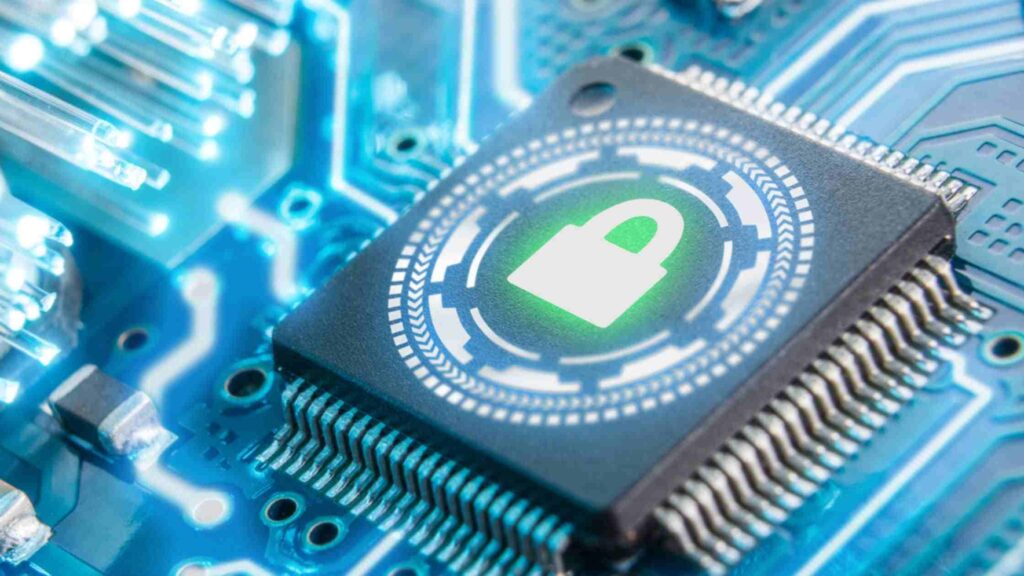
You can enhance your privacy, security, and browsing experience by using an anonymous proxy service. Here are 7 key advantages:
- Protect your online identity: Anonymous proxies act as a middleman between you and the internet. They send requests on your behalf, hiding your IP address and other personal data from prying eyes. This protects your identity and keeps your location secure.
- Browse anonymously: When you use an anonymous proxy, you don’t leave any digital footprints. This allows you to browse the web like a ghost, enjoying private and uninterrupted online activity. Websites can’t track your behavior, giving you complete anonymity.
- Reduce the risk of identity theft: By using an anonymous proxy, you register as an anonymous visitor on websites. Your requests are sent through the proxy server, keeping your identity hidden. This reduces the risk of your personal information being stolen or misused by hackers.
- Bypass security measures: Anonymous proxies provide access to trusted IPs, helping you bypass security measures and firewalls set up by websites and organizations. This allows you to access content that might otherwise be restricted or blocked in your location.
- Access restricted content: With an anonymous proxy, you can access content that is restricted in your region. Whether it’s entertainment, recreational sites, or other non-business content, proxies tunnel your traffic through regular or encrypted sessions, allowing you to bypass regional restrictions.
- Avoid targeted marketing: Digital marketers often use your browsing data to target you with ads. Anonymous proxies hide your online activity, preventing marketers from tracking your behavior. This gives you a more independent and choice-centric browsing experience without being bombarded by targeted ads.
- Achieve faster internet speeds: Anonymous proxies can cache websites you visit frequently. When you revisit these sites, the proxy shows you a cached copy, saving bandwidth and providing faster loading times. This improves your overall internet speed and network performance.
In short, use anonymous proxies when you need anonymity, to bypass restrictions, or to enhance online security in various scenarios.
Drawbacks of Anonymous Proxies
It’s important to weigh these disadvantages and take additional precautions to protect your data and ensure a secure browsing experience.
Using an anonymous proxy can slow down your internet connection. This happens because your data has to pass through the proxy server, adding extra steps like encrypting and decrypting information.

Moreover, the security and anonymity of a proxy server depend on the provider. If you choose an unreliable proxy service, your data could be logged or misused. Advanced tracking methods and skilled cybercriminals can sometimes bypass the protections offered by proxies, exposing your identity.
There can be compatibility problems between your network and the proxy server. These issues can cause errors and disrupt your internet experience, making it less reliable. Anonymous proxies can hide your IP address but do not encrypt your data. This means your information is still vulnerable to third parties who might intercept your communications.
Since the proxy server handles all your internet traffic, it becomes a target for hackers. If the proxy is compromised, your sensitive data could be exposed. Additionally, malicious actors might use proxies to spread malware, potentially infecting your computer.
In a nutshell, anonymous proxies can slow down your internet, have security risks and may have compatibility issues with your network. Proxies don’t encrypt your data, making it vulnerable to interception. They can also be targeted by hackers, potentially exposing your sensitive information. Despite these drawbacks, anonymous proxies can still be a useful tool for enhancing online privacy and accessing restricted content.
How to Address the “Anonymous Proxy Detected” Error When Streaming Online
When using a proxy, you might encounter the “Anonymous Proxy detected” error. This happens when the target server identifies that you are connecting through a proxy.
Here are some common reasons and ways to fix this issue:
- Terminate all applications: Close any apps that might be connecting through the proxy. This reduces the chances of your IP being detected.
- Clear browser cache and cookies: Clear your browser’s cache and cookies to remove any stored data that might reveal your proxy usage. This can help you start fresh with your browsing session.
- Request a new IP through proxy rotation: If your proxy service supports IP rotation, request a new IP address. This changes the IP you are using, making it harder for the server to detect your proxy.
- Use a high-quality proxy provider: Free or low-quality proxies are often unreliable and easily detected. Consider switching to a better proxy provider that offers reliable and less detectable IP addresses.
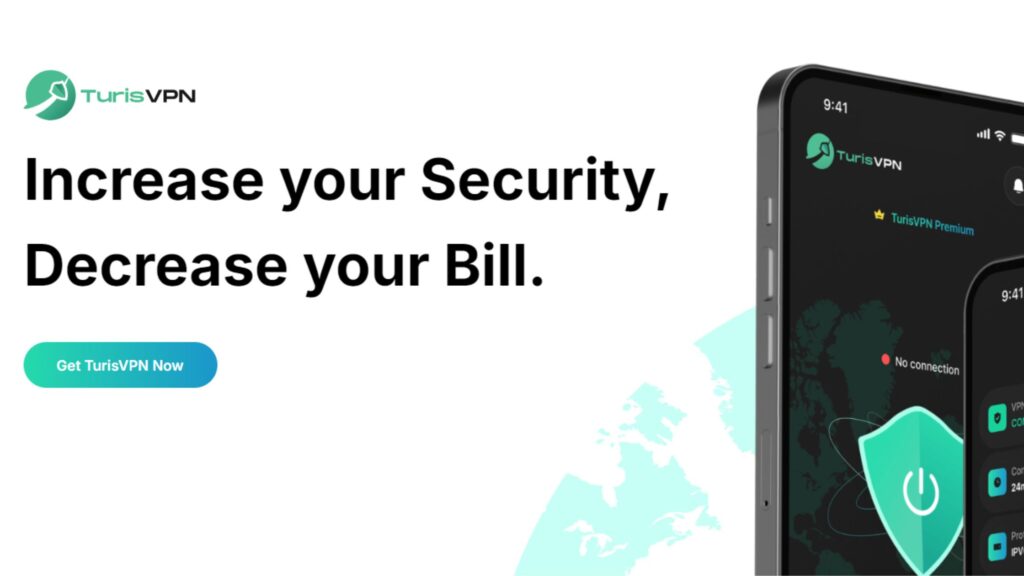
Consider using TurisVPN:
TurisVPN can also help you avoid the “Anonymous Proxy detected” error. VPNs work like proxies but offer additional encryption, making your connection more secure and harder to detect.
TurisVPN, for instance, can provide a smooth and secure streaming experience by masking your IP and encrypting your data. With TurisVPN, you can enjoy a seamless streaming experience without worrying about detection.
Bottom Line
Anonymous proxies are effective tools for protecting your online privacy by hiding your IP address and allowing access to restricted content. Understanding what is an anonymous proxy service, their types, benefits, and risks helps you use them effectively.
However, proxies can sometimes be slow or unreliable. For better security and performance, consider using TurisVPN, which encrypts all your data.
FAQs
Q1. What does an anonymous proxy do?
An anonymous proxy acts as a go-between for your device and the Internet, masking your IP address and personal information. It routes your internet traffic through its own server, allowing you to browse the web anonymously, access restricted content, and protect your online identity from tracking and potential threats.
Q2. How to get rid of anonymous proxies detected?
To remove detected anonymous proxies, you can try the following methods:
- Check for malware: Run a security scan to ensure no malicious software is causing proxy detection.
- Clear your browser cache: This can eliminate any saved data that may reveal proxy usage.
- Disable proxy settings: Go to your browser or device settings and disable any configured proxy servers.
- Use a VPN: A Virtual Private Network (VPN) can provide a more secure connection and may help bypass detection.
- Change your IP address: Restart your modem or use a different network to acquire a new IP address.
